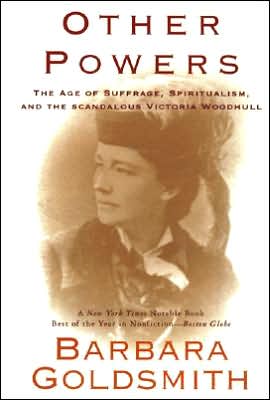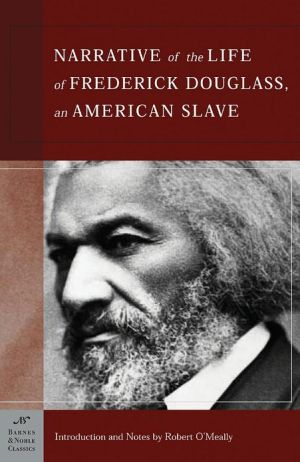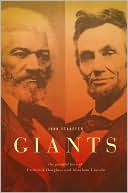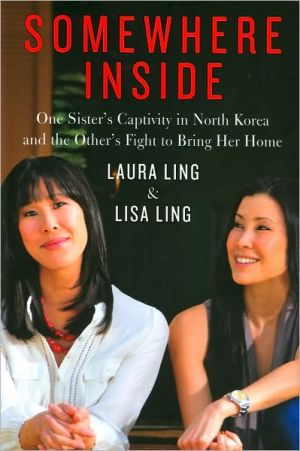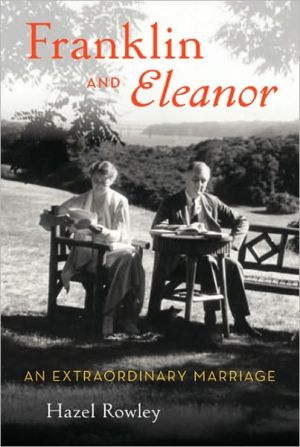Other Powers: The Age of Suffrage, Spiritualism, and the Scandalous Victoria Woodhull
Barbara Goldsmith's portrait of suffragette Victoria Woodhull and her times was hailed by George Plimpton as "a beautifully written biography of a remarkable woman" and by Gloria Steinem as "more memorable than a dozen histories."\ A highly readable combination of history and biography, Other Powers interviews the stories of some of the most colorful social, political, and religious figures of America's Victorian era with the courageous and notorious life of Victoria Woodhull—psychic,...
Search in google:
This book interweaves the stories of some of the most important social, political, and religious figures of 19th-century America with the courageous and notorious life of Victoria Woodhull -- spiritualist, suffragette, and the first woman to address a joint session of Congress. San Francisco Chronicle Goldsmith has woven the stories into a cohesive whole, smoothly cross-cutting between the personal and political....[M]assive, detailed and immensely readable.
A PAGE OF HISTORY\ May 5, 1892: As the delegates to the National American Woman Suffrage Association convention filed into the Auditorium Theatre in Chicago, they found on the seats a leather-bound pamphlet titled "A Page of History." On the first page was an announcement that Victoria Woodhull would run for president of the United States against Grover Cleveland and Benjamin Harrison. The rest was a compendium of extravagant praise from such leaders of the woman's rights movement as Susan B. Anthony, who called Victoria a "bright, glorious, young and strong spirit"; Elizabeth Cady Stanton, who predicted, "In the annals of emancipation the name [Victoria Woodhull] will have its own high place as a deliverer"; and Paulina Wright Davis, who said, "I believe you were raised up of God to do wonderful work and I believe you will unmask the hypocrisy of a class that none others dare touch." Isabella Beecher Hooker lent the religiosity for which her family was famous by stating that Victoria was "Heaven sent for the rescue of woman from the pit of subjection." What the pamphlet did not say was that this praise had been written a quarter of a century earlier.\ The following day, about a dozen reporters waited impatiently in Parlor K of the Wellington Hotel for Victoria Woodhull's press conference to begin. It had been scheduled for ten, but by eleven she still had not appeared. In order to placate the newsmen who were threatening to leave, her husband, John Biddulph Martin, the wealthy head of a family-owned bank in London, ordered the waiters to serve whiskey and ham sandwiches. Thus they were standing about eating and drinking when Victoria swept into the room holding the arm of her sister, Tennessee, now Lady Cook, Viscountess of Montserrat. They were dressed identically, in blue velvet gowns trimmed with Venetian lace. Victoria wore her trademark white rose at her throat, just as she had done twenty years earlier, when she had first run for the United States presidency. The sisters made a stunning pair: At fifty-four Victoria retained the fine, chiseled features and ramrod posture that reminded some of her admirers of Queen Victoria. At forty-six, Tennessee was still an ivory-skinned beauty with red hair and a delicate cleft chin.\ Victoria Woodhull Martin greeted each of the reporters and then announced that her nomination was sponsored by the NAWSA. She said she had composed a letter of acceptance that would be distributed at the end of the conference and added, "If my political campaign for the Presidency is not successful, in fact, it will be educational for women."\ Actually, both Martin and his wife knew that this was a costly but hopeless campaign, but they didn't care. They were interested not in American politics but in British society. John Martin was convinced, even if his British friends were skeptical, that his wife had once been the respected leader of the woman's rights movement in America. If she could recapture that position now and prove it, with scrapbooks full of praise from the American press, then Martin might be able to convince his social peers, who had long shunned and reviled his American wife, that the scandalous rumors surrounding her were merely the spiteful gossip of misinformed bigots.\ Though few Americans any longer remembered who Victoria Woodhull was, her old antagonist Lucy Stone, the Boston woman's rights leader who was in Chicago for the convention, could never forget. She felt that two decades earlier, Victoria had almost wrecked the movement. The following day, when Lucy read of Victoria's press conference, she called one of her own and told the reporters, "The statement that Mrs. Biddulph Martin is our candidate for president is wholly without foundation. We have no presidential candidate, and we do not even know the persons who are said to have nominated her."\ After Stone's statement, the younger members of the NAWSA ridiculed Victoria's claim. Many of them denounced her as a self-aggrandizing charlatan who had long since been abandoned by the movement. These women assumed the endorsements were bogus, and one representative, Mary Frost Ormsby, sent her copy to Susan B. Anthony and wrote, "Knowing your love of truth and justice ... I take the liberty of sending this out to you.... I was deceived by Mrs. Martin into the belief she was a philanthropist and an honest woman. My eyes are now opened, I know to the contrary." There is no record that the seventy-two-year-old Anthony replied to Mrs. Ormsby, but she carefully pasted Ormsby's letter in her scrapbook. It would have been difficult for Anthony to explain to someone of Mrs. Ormsby's generation that the praise of Victoria Woodhull, attributed to her and the others, was genuine.\ In his effort to influence the NAWSA delegates, John Martin suggested contacting Isabella Beecher Hooker, the eminent Spiritualist, woman's rights advocate, and member of the prestigious Beecher family, who had written Victoria that she would be in Chicago for the convention. To her husband's surprise, Victoria said she wanted nothing to do with Mrs. Hooker. Martin protested. Hadn't she told him that Isabella was her closest American friend, the one who had supported her in what she referred to as her "Gethsemane"? Still Victoria was adamant.\ Two days later, hoping to find a strong ally, John Martin, without his wife's knowledge, arranged to meet Isabella Beecher Hooker in a parlor off the main lobby of the Sherman House. He was accompanied by a male secretary who recorded the ensuing conversation in shorthand, and later typed it. At seventy, Isabella was frail, suffered from arthritis and had trouble hearing, but she was still prominent in the movement. After a brief exchange of pleasantries, Martin said, "Mrs. Hooker, I am glad Mrs. Martin is not here. Some things are easier to say outside of her presence. My wife does not seem to recollect why it is that her work of twenty years ago on the suffrage movement has been forgotten while her attack on your brother Henry Ward Beecher is not forgotten."\ Of course Isabella knew the answer to John Martin's question, but she would not tell him about his wife's catastrophic involvement with her brother, the great Brooklyn preacher, which had led to Victoria's imprisonment and exile. Instead she changed the subject and recalled a happier time a quarter of a century earlier when Isabella first saw Victoria Woodhull standing against a corridor wall of the Capitol building in Washington, nervously waiting to address a joint session of Congress, an honor that had been awarded to no other woman.\ "Her dress was peculiar," commented Isabella.\ "How so?" asked Martin.\ "She wore a felt hat such as men wear. When she rose to speak I thought she would have fainted. Her face flushed in patches. I was fascinated by Mrs. Woodhull."\ How could John Martin understand that fascination and all that had happened as a result? And who would have thought that what started with Victoria's assertion of equal rights for women would eventually cause them both to become reviled outcases? "You know Mrs. Henry Ward Beecher is writing recollections of my brother in a Philadelphia paper in which I am treated unkindly," she said.\ "I know this is a painful subject," replied Martin, who seemed concerned only for Victoria. "But you know that my wife was attacked in Henry Ward Beecher's biography. I tell you plainly we will have it all out, come what may to any of his family."\ Turning his threat aside, Isabella continued to recall the tangled past. "My brother Henry called on me to denounce Victoria. I refused. I said that I knew nothing against her and all that I knew of my own knowledge was in her favor. Then my friends began to fall away. I was estranged from my family. My daughter, now in Heaven, told me I had no right to imperil my husband's life for the sake of Mrs. Woodhull. Because I would not denounce her they tried to make me out insane. I was left alone. Quite alone. No one can tell what I suffered." The secretary's notes of the conversation are so precise that one almost hears her despairing voice.\ John Martin replied, "You forget, Mrs. Hooker, what my wife suffered."\ Isabella chose not to answer this accusation, but said wearily, "All this is an old story. Mrs. Martin forgets how long she has been away from America. If she wants supporters for her campaign she should spend ten thousand dollars and put out a special edition of The Arrow, the great organ of the Spiritualists. They will support her."\ Abandoning his efforts to win Isabella over, Martin replied with evident annoyance, "I will tell her what you say, but after this interview it is hardly necessary that you should meet with her." With this he dismissed Isabella, the loyal friend who had once stood with Victoria on what appeared to be the brink of a new world.\ Despite his failure to recruit Mrs. Hooker, John Martin persisted. He arranged to meet with Joseph R. Dunlop, the publisher of the Chicago Mail, and asked him to run an article in his newspaper about Victoria Woodhull and what she had done for women. Dunlop obliged. On May 8, 1892, an article appeared, "Tennie and Her Vickie," which began mildly enough, "The Woodhull and Claflin campaign for the presidency is being launched and delegates have arrived in Chicago to participate in the convention in which the gentle Victoria is to be nominated." But the Mail added that when Victoria and her sister, Tennessee, lived in Chicago they operated "a house in a grand and peculiar style" and practiced spurious fortune-telling and healing techniques. Their mother, Roxanna (Roxy) Claflin, was described as a bogus fortune-teller. Their father, Reuben (Buck) Claflin, was a charlatan and a thief. The article concluded, "And all America knows that Victoria Woodhull was solely responsible for the greatest scandal of the century."\ Victoria told her husband that these "lies" were ruining her health and threatening her life. Would she never be free of her malicious enemies? The day after the Mail printed its story, John Martin appeared, over his wife's objections, at the Cook County Circuit Court and lodged a suit against Dunlop and the Mail for $100,000 in damages.\ Undaunted, on May 10, Dunlop ran another article stating that Tennessee Celeste Claflin, though now a titled English lady, was still under indictment in Ottawa, Illinois, on a charge of manslaughter dating back to 1863. "It was so long ago. It was another world," Tennessee told John Martin by way of explanation. Evidently, all of this proved too much for the conservative banker. He dropped the case against Dunlop and the Mail and took Victoria and Tennessee back to New York, where they boarded the Persian Monarch to Southampton.\ But who was Victoria Woodhull? John Martin knew her in only one of her many roles, as the adored wife who shared his life. But she was also the Spiritualist, the "high priestess" of free love, the crusading editor, the San Francisco actress and part-time prostitute, the founder of the first stock brokerage firm for women, the disciple of Karl Marx, the blackmailer, the presidential candidate, the sinner, the saint.\ She had been all of these and more, for in her many aspects she combined in abundance many of the influences that shaped the women of her world. Her compassion for their suffering was the most persistent and most genuine of her feelings, and Victoria never stopped believing that the spirits had brought her into the world to lead a "social revolution." She said that from her birth, and even before, she had been marked for this fate. As a Spiritualist and a clairvoyant, she claimed to remember every event in her life, even to the moment of her conception, even to her birth when her mother clasped her to her breast and "the look of pain and anguish ... was burnt into my plastic brain as she suckled me."
\ BUST MagazineThis illuminating book tells a story much larger than that of one woman, taking alively jaunt alongside the spiritual escapism that helped spawn the women's movement and the key figures and reforms of post-Civil War America....One is left wondering how history paved over such a remarkable and provocative individual.\ \ \ \ \ Los Angeles Times[Goldsmith] is a master of quotation, smoothly extracting from one after another lengthy letter or transcript the nub that captures the human heart of the matter being addressed.\ \ \ New Yorker[A]n often brilliantmulti-tentacled exploration of Victorian sexual politics.\ \ \ \ \ San Francisco ChronicleGoldsmith has woven the stories into a cohesive whole, smoothly cross-cutting between the personal and political....[M]assive, detailed and immensely readable.\ \ \ \ \ Washington PostWhat a great cast of mountebanks, lechers, spiritualists, sexual revolutionaries, and scheming politicians populate Barbara Goldsmith's fine portrait of an era that resembles the 1990's in America. Goldsmith tells a great tale of a time when the national ego and id collided: racial tensions, the politics of gender and identity, sexual license, and declarations of family values vied for domination as seen through the remarkable life of Victoria Woodhull and the determined women who followed her, and the determined men who pursued her.\ \ \ \ \ Publishers WeeklyWomen's rights advocate Victoria Woodhull (1838-1927) was a spiritualist, clairvoyant, faith healer and apostle of free love who maintained that her spirit guide had set her on a mission to create a social revolution. These facts, downplayed by her previous biographers, are at the center of Goldsmith's riveting portrait. Raised by an ignorant, brutalized mother and a tyrannical father who apparently sexually abused her, Ohio-born Victoria Claflin eloped at 15 with Canning Woodhull, a morphine-addicted, alcoholic doctor. A destitute actress and prostitute, she went from rags to riches by becoming a financial adviser, as well as a trance medium, for blustering, sexually insatiable New York railroad tycoon Cornelius Vanderbilt. In 1870, Woodhull founded Woodhull and Claflin's Weekly (with her sister, Tennessee Claflin), a newspaper that argued for women's rights, though, in time, her outspoken views on free love would split the women's movement. As Goldsmith (Little Gloria... Happy at Last) reveals, Woodhull had her eye on the political prize: in her 1872 presidential campaign against Ulysses S. Grant and Horace Greeley, she blackmailed rival suffragists into supporting her by threatening to publish articles in her newspaper exposing their sexual behavior. Election Day found Woodhull in jail on charges of libel and obscenity for her expos of Brooklyn revivalist preacher Henry Ward Beecher's extramarital affair with the wife of his best friend, newspaper editor Theodore Tilton. She moved to England in 1877, shed her past and married a wealthy British banker. Through Woodhull's life, Goldsmith's colorful, well-researched saga speaks volumes about the oppression of women in Victorian America.\ \ \ \ \ Library JournalVictoria Woodhull was a charismatic and notorious figure in the struggle for women's rights in the years following the Civil War. She was the first woman to address Congress and the first woman to run for president. Goldsmith (Little Gloria...Happy at Last, LJ 6/1/80) has successfully woven together a history of Woodhull's life with the lives of the powerful she touched. Using a wide variety of sources, including letters, diaries, and newspaper accounts, she writes of the use of spiritualism, the private and public struggles between the various players, and the sexual scandals that culminated in the 1876 Tilton v. Beecher trial, when the Rev. Henry Ward Beecher was accused of having had an affair with the wife of his friend Theodore Tilton. This biography is also the fascinating story of an era whose supporting cast includes Susan B. Anthony, Elizabeth Cady Stanton, Frederick Douglass, Horace Greeley, and Commodore Vanderbilt. Highly recommended.Linda McEwan, Elgin Community Coll., Ill.\ \ \ \ \ BooknewsThe amazing Ms. Woodhull was a famed Victorian era clairvoyant, darling then bane of the suffrage movement, persecuted sexual equality advocate, newspaper publisher, first woman to address a joint session of Congress, and per a 1872 tabloid, "the prostitute who ran for president." Social historian Goldsmith (Little Gloria ... Happy at Last) draws on primary sources (letters, diaries, newspaper articles, and court transcripts) to illuminate the story of a social revolutionary and her prominent peers who embodied 19th century US upheavals in social, religious, and political spheres. Includes period illustrations. Annotation c. by Book News, Inc., Portland, Or.\ \ \ \ \ Peter GayBarbara Goldsmith's Victoria Woodhull is irresistible...Scrupulously researched and well-told. A biography guaranteed to keep the reader reading.\ \ \ \ \ Los Angeles Times[Goldsmith] is a master of quotation, smoothly extracting from one after another lengthy letter or transcript the nub that captures the human heart of the matter being addressed.\ \ \ \ \ Millicent BellBarbara Goldsmith's account of Woodhull...is far more than a conventional biography....The effect of her method is to present a dense and complex picture of an entire culture, in which the status of women became, more than ever before, a contentious public issue....Woodhull [is shown as] a force within a constellation of American social movements that soon broke apart.\ — The New York Review of Books\ \ \ \ \ NY Times Book ReviewA historian's account of the fabulous Presidential candidate, clairvoyant, stockbroker, publisher, free lover and jailbird.\ \ \ \ \ Richard BrookhiserBarbara Goldsmith has written a life and times, with emphasis on the times. She has combed diaries, letters and back issues of newspapers, and her pages swarm with major and minor figures, from Karl Marx and Ulysses S. Grant to Stephen Pearl Andrews....She writes with sympathy...\ — The New York Times Book Review\ \ \ \ \ The New Yorker[A]n often brilliant, multi-tentacled exploration of Victorian sexual politics.\ \ \ \ \ The Washington PostWhat a great cast of mountebanks, lechers, spiritualists, sexual revolutionaries, and scheming politicians populate Barbara Goldsmith's fine portrait of an era that resembles the 1990's in America. Goldsmith tells a great tale of a time when the national ego and id collided: racial tensions, the politics of gender and identity, sexual license, and declarations of family values vied for domination as seen through the remarkable life of Victoria Woodhull and the determined women who followed her, and the determined men who pursued her.\ \ \ \ \ Richard Bernstein[A]bsorbing, sweeping... a portrait of an age....full of closely detailed conflict and hypocrisy...[I]t takes on a Dante-esque dimension. It is certainly a feminist book....The most conspicuous elements...are the richness of its narrative, the complex and morally nuanced portraits of its characters and the author's tendency to present the little-known facts without judgment so readers can decide for themselves.\ — The New York Times\ \ \ \ \ Kirkus ReviewsSpiritualist, blackmailer, newspaper editor, presidential candidate, free love enthusiast: As this terrific tome proves, history is anything but boring when Victoria Woodhull is the topic. The past six months have seen not one but two excellent books finally giving this woman her historical due. The first, Notorious Victoria by Mary Gabriel (published in January), while offering some pertinent historical background information, doesnþt stray far from the events of Woodhull's soap-opera life. Goldsmith (Little Gloria...Happy at Last, 1980; Johnson v. Johnson, 1987) takes a broader approach in her journey through the emotional and financial roller-coaster ride of Woodhull's life. With her keen storytelling skills, she vividly brings to life the time and places in which Woodhull moved: New York City in 1868, when Woodhull arrivedþa teeming, bustling, expanding city; the brothels where Woodhull peddled various health elixirs and birth control products. In this way, taking long side trips into events influencing turn-of-the-century America's collective consciousness, Goldsmith produces a powerful, comprehensive analysis of one of history's most fascinating women. Goldsmithþs Woodhull is a scrappy woman who usually landed on her feet after adversity, befriending along with her sister the business tycoon Commodore Vanderbilt, launching the first female brokerage house on Wall Street, and becoming the first woman to run for president. She also became one of the most ardent leaders in the suffrage and Spiritualist movements (Goldsmithþs account includes such gems as a letter from Elizabeth Cady Stanton asking Woodhull to contact the biblical Rachel, ElizabethBarrett Browning, and other dead women). But when she took on Henry Ward Beecher, a powerful but philandering pastor, Woodhull quickly alienated those who had once revered her and died in England, a forgotten figure in her native land. A meticulously researched, absolutely marvelous rendering of an intriguing era and one of the women who helped make it so. (90 illustrations, not seen)\ \
